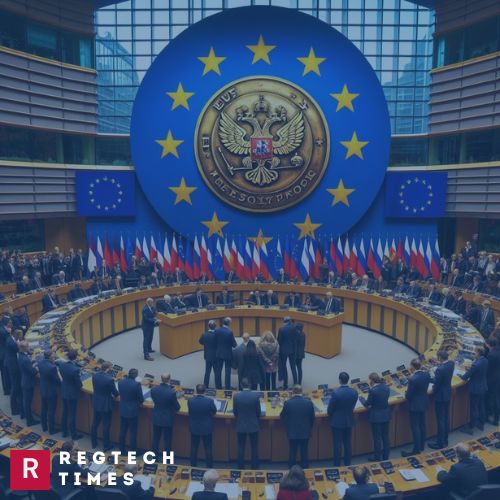The European Council, the principal decision-making body of the European Union (EU), has recently imposed new sanctions against a Russian entity and 19 individuals. This move is a response to the repression of civil society and democratic opposition in Russia, particularly in connection with the death of political opposition leader Alexei Navalny.
Understanding Sanctions
Sanctions represent political and economic measures deployed by nations or organizations against states or entities to safeguard national security interests and uphold international law. They involve imposing temporary restrictions—economic, trade-related, diplomatic, or cultural—on a target, lifted when security concerns diminish. Primarily, sanctions entail ceasing, temporarily or permanently, trade or financial interactions with a country, driven by foreign policy or security objectives. The measures can encompass frozen assets, travel bans, export constraints, and more. Their overarching goal is to pressure nations into engaging in harmful behaviors, disrupting peace, or violating international norms. Sanctions serve as a strategy to persuade foreign entities to alter their conduct.
The Sanctions: A Closer Look
The sanctions imposed by the European Council target the Federal Penitentiary Service, judges, prosecutors, and judiciary members who allegedly played roles in the imprisonment and eventual death of Navalny. The sanctions regime involves trade restrictions on equipment, marking a significant escalation in the EU’s response to human rights abuses in Russia. These sanctions are not just symbolic; they have real-world implications for the individuals and entities involved. The travel bans and asset freezes can significantly impact their ability to operate internationally, thereby exerting pressure on them to change their behavior.
A New Framework for Human Rights
The European Union has instituted a new framework for imposing restrictive measures on individuals accountable for severe human rights violations or abuses, suppression of civil society and democratic dissent, and subversion of democracy and legal governance within Russia. This new framework is a testament to the EU’s commitment to uphold human rights and democratic principles. It represents a shift in the European Union’s approach to dealing with human rights abuses, moving from reactive measures to a more proactive stance. This proactive approach is designed to prevent human rights abuses before they occur, rather than merely responding to them after the fact.
The Restrictive Measures: An Effective Deterrent
The restrictive measures consist of travel bans for individuals, an asset freeze for individuals and entities, and a prohibition on making funds or economic resources available to those listed. These measures target those responsible for serious human rights violations or abuses, for repression of civil society and democratic opposition, and for undermining democracy and the rule of law in Russia. The measures are designed to put pressure on those responsible and deter others from engaging in similar activities. By making it more difficult for these individuals and entities to operate, the EU hopes to deter future human rights abuses.
The European Union’s Response: A Stand for Human Rights
This decision is part of the EU’s response to the accelerating and systematic repression in Russia. The new regime will also allow the EU to target those who provide financial, technical, or material support for, or are otherwise involved in or associated with, people and entities committing human rights violations in Russia. This broad scope of the new regime underscores the EU’s determination to address human rights abuses in a comprehensive manner.
In conclusion, the European Council’s new sanctions represent a significant step in the international community’s efforts to hold Russia accountable for its human rights abuses. As the situation continues to evolve, the world watches closely to see how these sanctions will impact Russia’s actions on the global stage. The EU’s new sanctions regime sends a clear message that human rights abuses will not be tolerated and that those responsible will face consequences.


